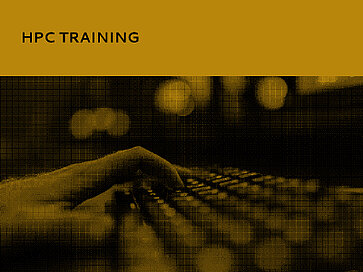
Register via Vienna Scientific Cluster here
6 - 7 December 2022, 09:00 - 17:00 CEST
Course for research and academia, industry, public sector and other (general public)
Organised by VSC Research Center (TU Wien) in cooperation with EuroCC Austria
Language: English
Location: Zoom
Price: free
During the past ten years, Python has seen a meteoric rise in both popularity and demand not only in general purpose programming but especially data science contributed to this trend. Despite Python's architectural shortcomings, even the field of High-Performance Computing (HPC), with its highly specific demands, profited from recent developments with various libraries and optimisations.
This course introduces participants to Python from an HPC viewpoint, the most practical tools, and various indispensable libraries for HPC use cases. After completion of this two-day course, participants are prepared to effectively develop their own Python libraries or integrate Python into existing projects.
Agenda (tentative)
6 December 2022 (Day 1)
08:45 Join online
09:00 Welcome & Motivation
09:20 Advanced Python (Collections, OOP, FP)
10:15 Break
10:25 Tooling (Testing, Debugging, Documentation, Logging)
11:05 Break
11:15 Plotting with Matplotlib
11:50 Performance (Timing, Profiling)
12:30 Lunch break
13:30 Bindings (CFFI, Boost.Python, f2py)
14:30 Break
14:40 Compiled Python (Cython, Numba)
15:40 Break
15:50 Development (Environment, Packages, IDEs, Containers)
16:10 Q & A
17:00 End
7 December 2022 (Day 2)
08:45 Join online
09:00 NumPy (Array creation & access, Array manipulation, Types, Broadcasting, Universal functions)
10:00 Break
10:10 SciPy (Overview, Subpackages, Examples)
10:45 Break
10:55 MPI4Py
12:30 Lunch break
13:30 Pandas
14:30 Break
14:40 Dask/cuDF
16:00 Q & A
17:00 End
Content (tentative)
Development
Tooling
Python bindings
Packages (HPC & data science)
Prerequisites
The participants are expected to have at least basic programming skills in Python and the ability to use the Linux command line interface, for example bash.
Hands-on labs
All participants will get a temporary training user on the VSC for the course. You will use your own laptop or workstation to connect to VSC to do the hands-on exercises.
It is possible to do the hands-on labs on your local system, you'll need a local installation of Python 3 and the packages mentioned above.
Accepted participants will be contacted a few days before the course and asked to do a short PRE-ASSIGNMENT that has to be completed before the course starts.
Lecturers
David Fischak and Simeon Harrison (EuroCC Austria and VSC Research Center, TU Wien),
Katrin Muck (VSC Research Center, TU Wien)
Language
Presentations will be in English, support during the hands-on sessions is available both in English or German.
Prices and eligibility
This course is offered free of charge via EuroCC Austria and is open for participants from academia and industry from the Member States (MS) of the European Union (EU) and Associated/Other Countries to the Horizon 2020 programme.
Registration
Please register with your official e-mail address to prove your affiliation.
Registration form on the website of the Vienna Scientific Cluster.
Registration period is from 12 Oct to 21 Nov 2022, and follows the "first come – first served" principle.
Following your successful registration, you will receive further information approx. 1 week before the course.
For the online course we can take a maximum of 40 persons. Additional registrations will be added to a waiting list.
Course material
Lectures and hands-on labs will be done directly on the VSC Jupyterhub and the Jupyter Notebooks will be visible after login with the trainee user provided. We'll explain how to access the VSC Jupyterhub in the morning of the first day and we will show a link to download the Jupyter Notebooks in case you prefer to do the hands-on labs on your local system.
Course organiser / contact:
Simeon Harrison and Claudia Blaas-Schenner
training-eurocc@vsc.ac.at